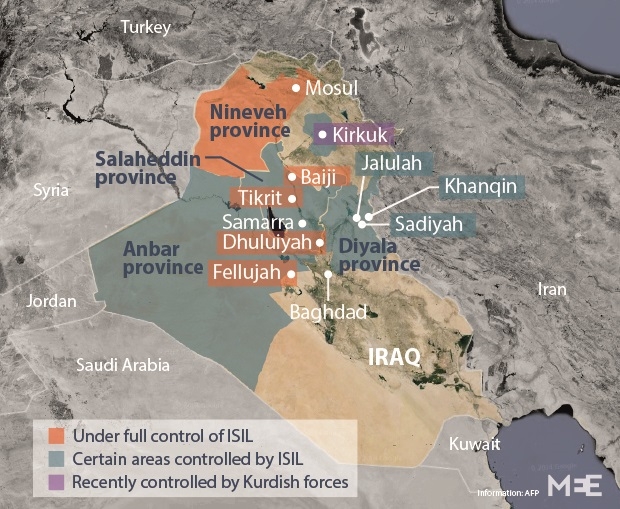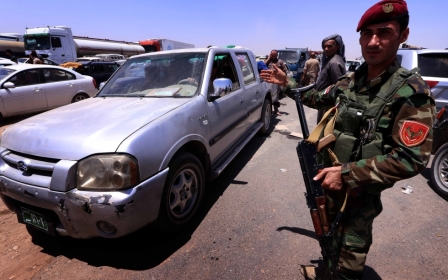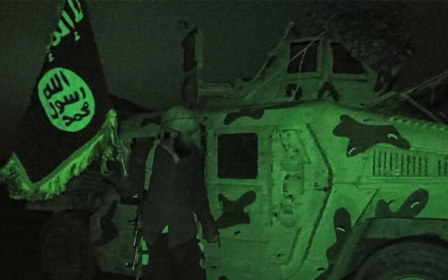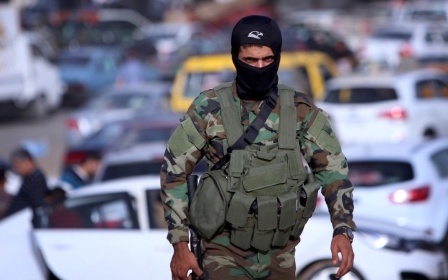Top Shiite cleric Sistani calls on Iraqis to take up arms
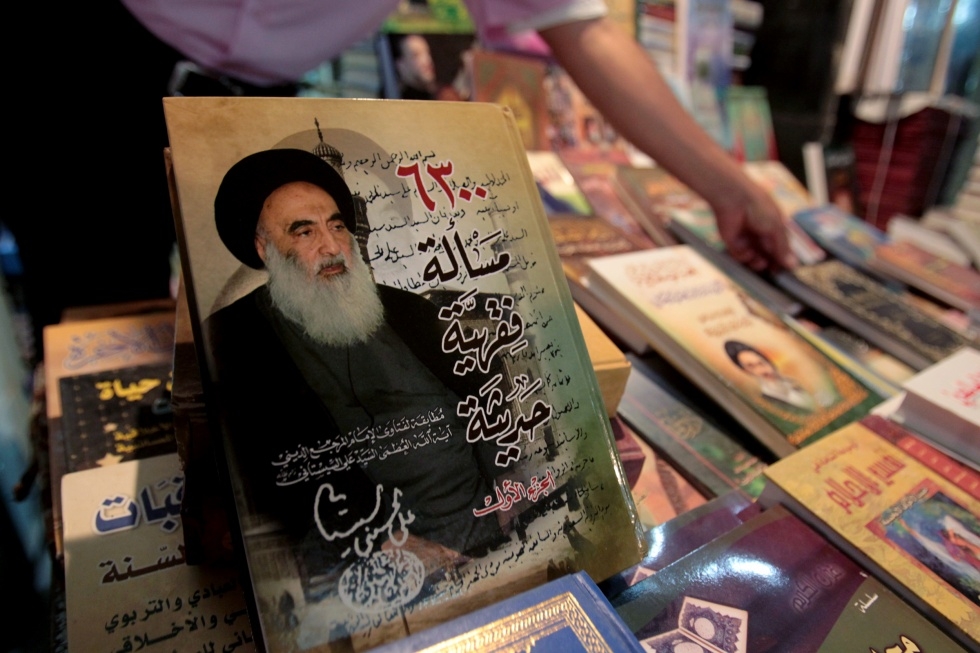
Top Shiite cleric Grand Ayatollah Ali al-Sistani called Friday for Iraqis to take up arms against "terrorists" who have overrun swathes of the country in a major offensive.
"Citizens who are able to bear arms and fight terrorists, defending their country and their people and their holy places, should volunteer and join the security forces to achieve this holy purpose," his representative announced on his behalf during Friday prayers in the city of Karbala.
"He who sacrifices for the cause of defending his country and his family and his honour will be a martyr," he added.
The elderly Sistani, who rarely appears in public, is highly influential in the Shiite Muslim world and is adored by millions.
An offensive launched by the Sunni Islamic State of Iraq and the Levant and its allies late Monday has overrun all of one province and chunks of three more.
In response, worshippers chanted "Labbeik Ya Hussein", meaning they would act at the behest of Imam Hussein, who is buried in a shrine in Kerbala, reported Reuters.
Security forces have so far failed to halt the drive, with some fleeing after throwing away their uniforms and abandoning their positions.
Shiite Prime Minister Nuri al-Maliki has already announced that the government will arm and equip citizens who volunteer to fight.
The news come shortly before reports emerged that ISIL had made further gains, moving into two strategically-important towns in the province of Diyala, northeast of Baghdad.
According to reports in Al Jazeera, security forces abandoned their posts and allowed ISIL to take control of the towns of Jalulah and Sadiyah about 150km from the capital, sending refugees fleeing into neighbouring Khaniqin.
All three towns are some 200 km away from the Iranian border, and represent ISIL’s eastern most outposts.
Reverberations around the world
Commenters were quick to comment on Sistani's comments:
Others interpreted it as a call for deeper Iranian involvement:
Middle East Eye propose une couverture et une analyse indépendantes et incomparables du Moyen-Orient, de l’Afrique du Nord et d’autres régions du monde. Pour en savoir plus sur la reprise de ce contenu et les frais qui s’appliquent, veuillez remplir ce formulaire [en anglais]. Pour en savoir plus sur MEE, cliquez ici [en anglais].


